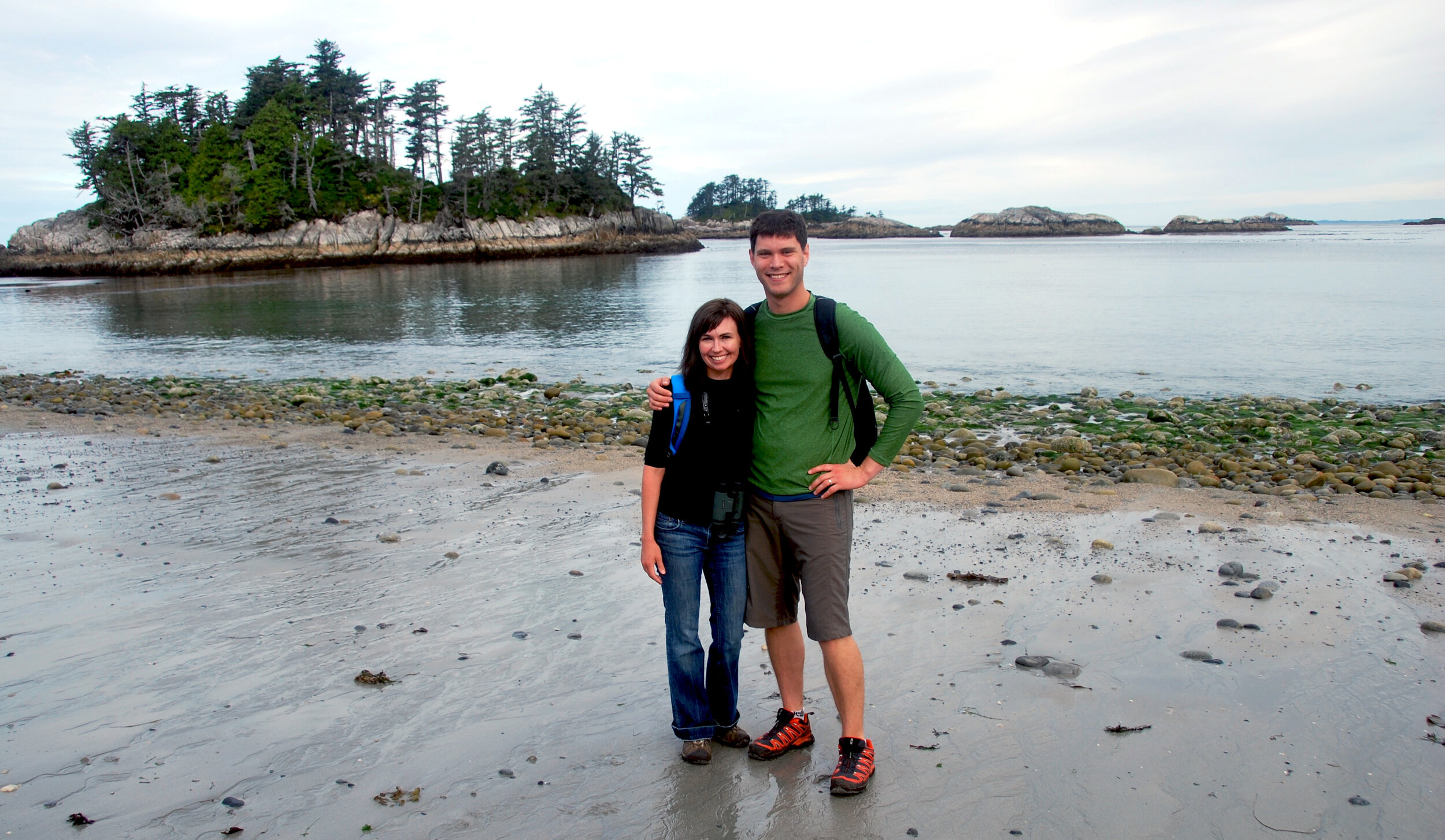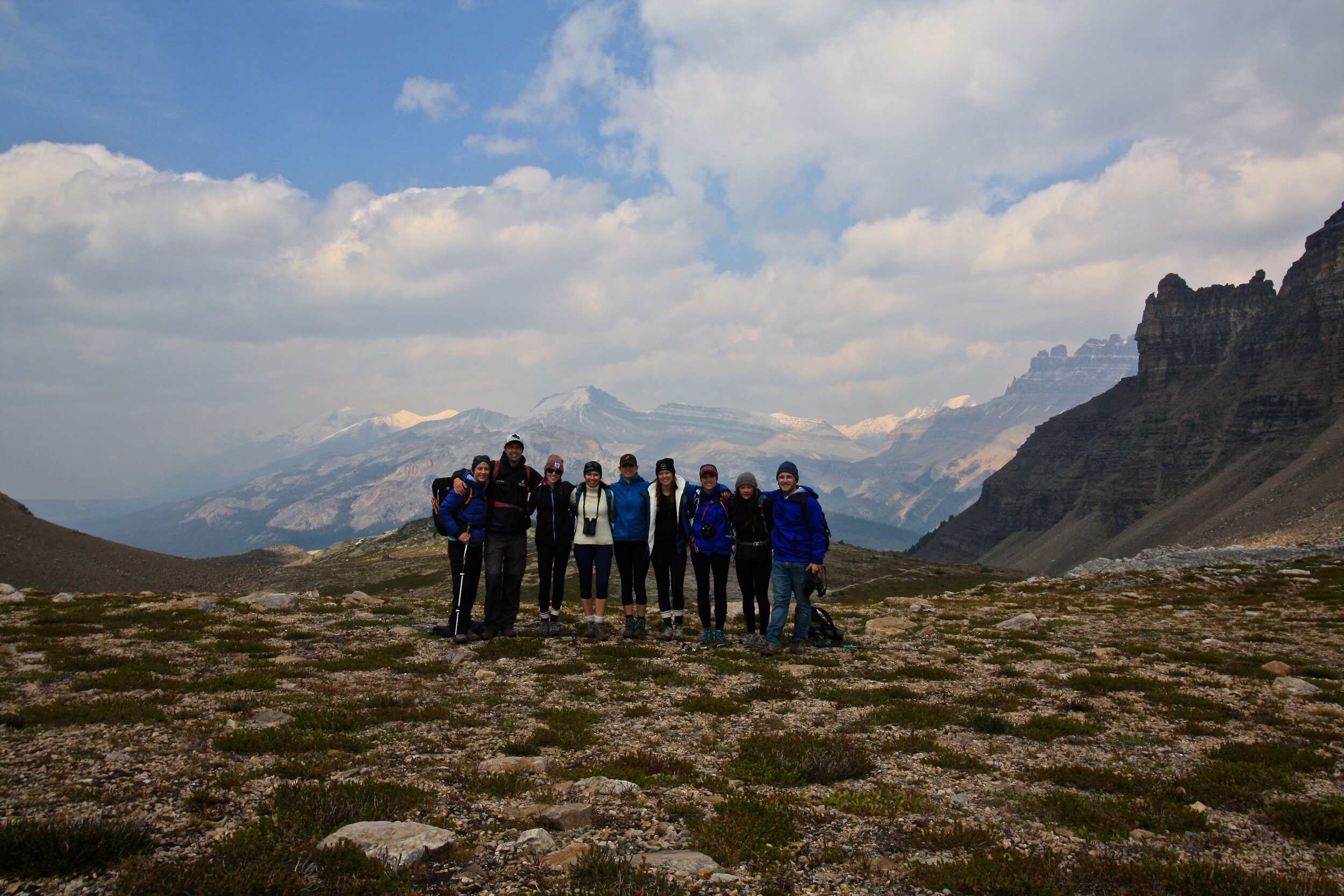
Letter to Prospective Students & Post-doctoral Fellows:
Thanks for your interest in joining the Baum Lab!
Please note that I am not accepting Masters students at this time and do not have the capacity to respond to enquires for Masters students. I wish you the best in your studies.
Mentoring students and post-doctoral fellows is an integral component of my research program, and an important opportunity for me to help you to discover your true research interests and mature into an independent scientist. I aim to produce world class scientists and conservation leaders with excellent critical-thinking, quantitative, oral and written skills. I will invest a significant amount of time and energy in helping you to develop your research project, from the initial ideas and study design, through to statistical analyses, manuscript writing, presentations and outreach. I strive to create a stimulating and supportive research environment, providing my lab members with the time, space, resources and opportunities for them to succeed. We have dedicated office and meeting room space, wet and dry labs, and a new molecular lab. Members of the Baum Lab work in our collaborative research environment shared with the Juanes lab. Lab members also benefit from collaborations with researchers across campus, as well as with scientists and conservation practitioners elsewhere in Canada, the U.S., and beyond, and often have the opportunity to visit and work in our collaborators’ labs.
I have high expectations of my team and I am highly selective about the people I accept into my lab. I expect you to be fully committed to your research, to be highly intelligent, curious, motivated and hard-working, to push through the tough times when they come, and to take ownership of your project, running hard with the ideas and opportunities with which I provide you. I ask that you be a good lab citizen, helping me to develop a productive, supportive, and collaborative research group, and contributing to academic life in the Biology Department and in the broader ecology community at UVic. I also expect lab members to contribute to society's understanding of climate change, ocean conservation and science in general through outreach activities. Grad school and post-doctoral research involve a lot of hard work, but should also be fun and rewarding experiences. UVic is a great university, enjoying a resurgence in ecology, and Victoria (which is situated on stunningly beautiful Vancouver Island) is a wonderful place to live! **We are committed to enhancing equity and diversity in academia, and encourage BIPOC candidates and people from other equity-seeking groups to apply to join our team. Please note that all applicants to the lab for trainee positions or employment should include an EDI statement that explicitly describes their active commitment to enhancing EDI in academia. Applicants who fail to do so will not be considered.**
-Our Natural Climate Change Solutions research program focuses on assessing how Canada’s coastal ecosystems, including eelgrass, tidal marshes and kelp, can potentially contribute to mitigating climate change through carbon sequestration. Projects will involve spatial modelling using climate change projections. Our new British Columbia marine research program focuses on climate change impacts on intertidal and subtotal kelp communities at Bamfield Marine Science Centre and elsewhere on Vancouver Island. I welcome ideas for new ocean climate change focused projects in Canada.
-Tropical research could focus on the role of the coral microbiome in conferring resilience to corals subjected to thermal stress or how climate change is altering reef food webs, with a focus on my long-term field site Kiritimati (Christmas Island) or potentially new sites in the Pacific. For the coral research, I am particularly interested in candidates with backgrounds in molecular and/or microbial ecology, and with advanced quantitative skills, including bioinformatics and statistical modelling skills and proficiency with statistical programs such as R, Matlab, or Python. For the reef food web research, I am interested in candidates with backgrounds in food web ecology, stable isotope lab work and related analyses. Experience in coral reef ecosystems desired but not essential.
Prospective Post-doctoral Fellows: I encourage prospective post-doctoral fellows with excellent publication records and relevant skills to email me with a brief introduction, including details of your prior academic and research experience, as well as your research interests and professional goals, and how you think these align with my research program. Please include a copy of your CV and a list of referees. Potential funding sources include UVic Aspiration Postdoctoral Fellowships, NSERC Postdoctoral Fellowships (open only to Canadian citizens and permanent residents), Mitacs Accelerate and Elevate Postdoctoral Fellowships (open to all nationalities; requires a partner organization), Banting Postdoctoral Fellowships (highly competitive; open to all nationalities), the Liber Ero Fellowship (open to all nationalities; focused on a Canadian conservation challenge), and the David H. Smith Conservation Fellowship (for partnered conservation research based at the University of Hawaii). I encourage prospective international post-doctoral fellows to also investigate funding options from their home country. I work with each PDF to ensure that through fellowships and my own funding that each PDF earns a minimum of $70,000/year + benefits.
Prospective Graduate Students: I encourage prospective PhD students with excellent qualifications to email me with a brief introduction, including details of your prior academic and research experience, as well as your research interests and goals for your graduate degree and how you think these align with my research program. Please also include a copy of your CV and transcript(s) (unofficial ones are fine) and a list of referees. Please note that I will not be accepting MSc students for the foreseeable future, and that due to the high volume of enquiries I receive from prospective students, I cannot respond to enquiries that do not include the requested information or meet these criteria.
You should also familiarize yourself with the process for applying for graduate school through UVic’s Department of Biology. Applications to UVic are accepted year-round but are due by March 15th each year in order to be eligible for internal graduate scholarships. I expect students joining my lab to be extremely competitive for these internal scholarships, as well as for scholarships from NSERC and other external funding sources (e.g. Vanier Canada Graduate Scholarships; Fulbright). Applications for NSERC graduate scholarships are due in the early fall, for start dates the following May, Sept. or Jan.
Funding: Please note that, as is typical in the Canadian funding system, PI's grants do not typically cover the full costs associated with graduate student and post-doctoral fellows' stipends. Interested individuals therefore must be competitive for national and international scholarships/fellowships and apply for these, typically ~1 year in advance of the intended start date in my lab. I am happy to work with excellent candidates to develop scholarship/fellowship proposals, and I am also open to international collaborations with other researchers. My grants cover student and post-doctoral fellows' research costs, a laptop and monitor for each researcher, costs associated with conference attendance, and also often supplement PDF and student stipends to internationally competitive levels. I ensure that between external and internal UVic scholarships/fellowships, teaching assistant stipends, and top-ups through my own funding that each graduate student earns a minimum of $27,000/year for the first 2 years (MSc) or $40,000/year for 4 years (PhD).
Prospective Undergraduate Students:
We usually have positions for a few undergraduate students each semester, ranging from work study positions and research assistantships to directed studies and Honours research, as well as summer NSERC USRA and SURA positions. I encourage interested students to start by volunteering with us a semester before they wish to begin formal positions in the lab, but also recognize that this might not be financially feasible for all students. If you are interested in joining the lab, please email me with a copy of your CV and transcript(s) (unofficial ones are fine) and a list of referees. Please note that due to the high volume of enquiries I receive from prospective students, I cannot respond to those enquiries that do not include this information.
